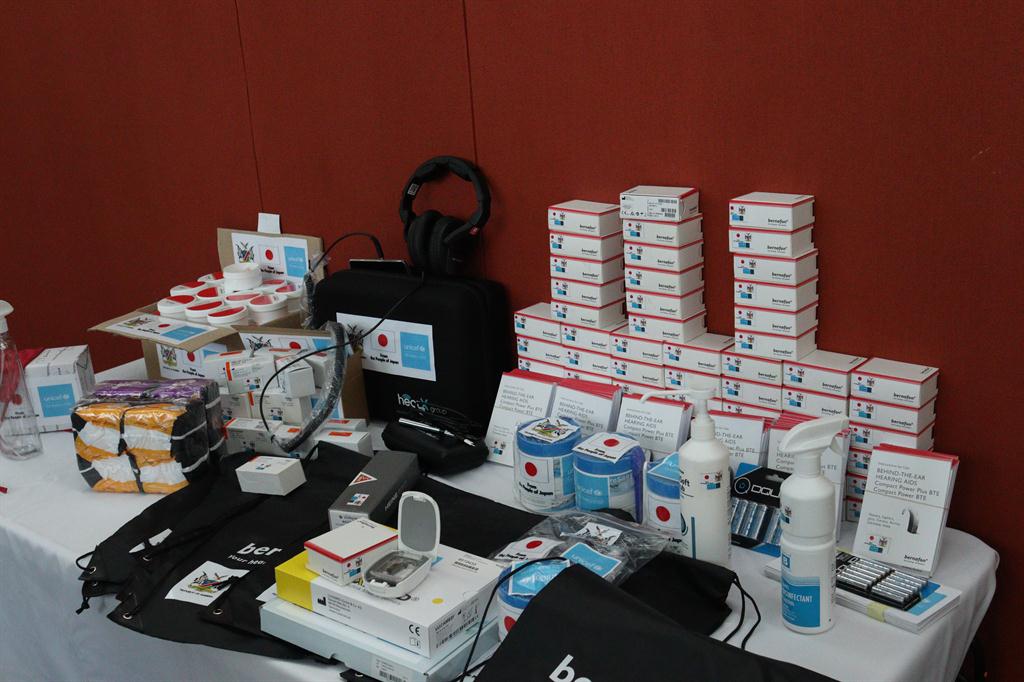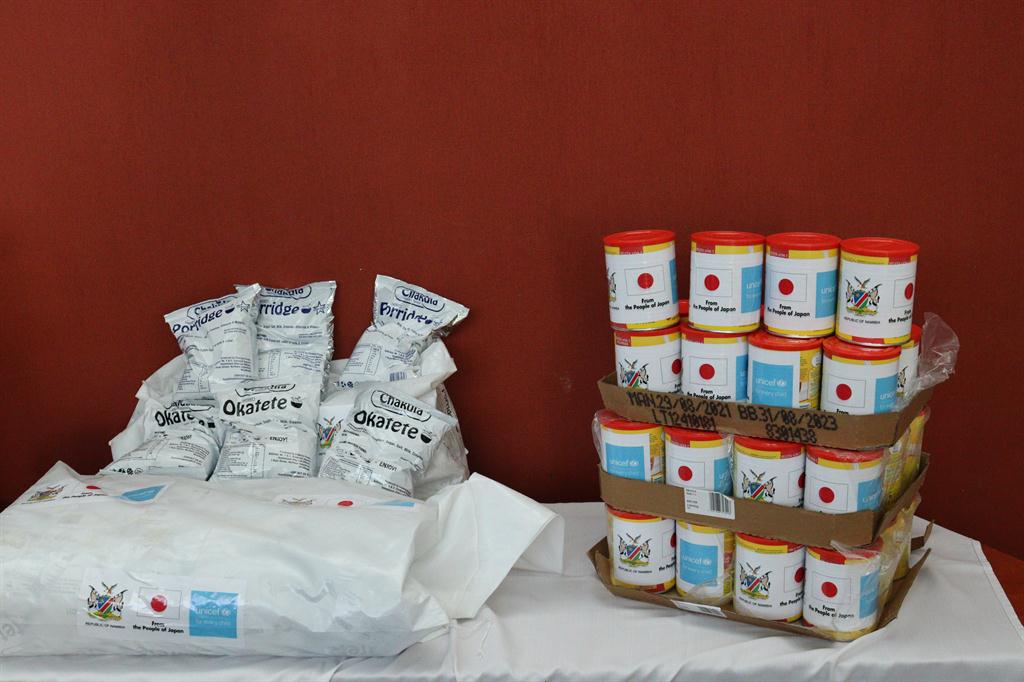Improving the lives of children with disabilities
Donations aims to aid learners with special educational needs and disabilities.
Rivaldo Kavanga
The United Nations Children's Fund (Unicef) on Monday, 29 November, donated educational supplies, supplementary food items and health food items to the value of N$6 million to the education ministry at the Centre for Communication and Deaf Studies in Windhoek. The goods are set to benefit 11 resource schools and inclusive schools that cater for learners with special needs and disabilities as well as children in 31 Early Childhood Development Centres from marginalised communities in the Omaheke, Kavango East, Kavango West and Zambezi regions.
The Japanese ambassador Harada Hideaki also handed over supplies and supplementary food to the ministries of education and gender.
Receiving the donations on behalf the ministry, deputy education minister Faustina Caley highlighted the devastating impact Covid-19 has had on learners with Special Educational Needs and Disabilities (SEND).
“Learners with SEND have been experiencing challenges with accessing information, additional to being excluded from education, nutrition, water and sanitation services and are thus at higher risk of contracting Covid-19 and developing health complications,” Caley said.
Speaking at the handover, Unicef representative Rachel Odede urged that the responsive approach to the pandemic should be a disability-inclusive one and recovery should be guided by persons with disabilities themselves.
She added that the supplies Unicef handed over are aimed at ensuring that children with disabilities and other special needs in education are kept safe and continue learning. Odede further emphasised that Unicef will continue to support and work with the Namibian government to monitor the implementation of the United Nations Convention on the Rights of Persons with Disabilities.
The United Nations Children's Fund (Unicef) on Monday, 29 November, donated educational supplies, supplementary food items and health food items to the value of N$6 million to the education ministry at the Centre for Communication and Deaf Studies in Windhoek. The goods are set to benefit 11 resource schools and inclusive schools that cater for learners with special needs and disabilities as well as children in 31 Early Childhood Development Centres from marginalised communities in the Omaheke, Kavango East, Kavango West and Zambezi regions.
The Japanese ambassador Harada Hideaki also handed over supplies and supplementary food to the ministries of education and gender.
Receiving the donations on behalf the ministry, deputy education minister Faustina Caley highlighted the devastating impact Covid-19 has had on learners with Special Educational Needs and Disabilities (SEND).
“Learners with SEND have been experiencing challenges with accessing information, additional to being excluded from education, nutrition, water and sanitation services and are thus at higher risk of contracting Covid-19 and developing health complications,” Caley said.
Speaking at the handover, Unicef representative Rachel Odede urged that the responsive approach to the pandemic should be a disability-inclusive one and recovery should be guided by persons with disabilities themselves.
She added that the supplies Unicef handed over are aimed at ensuring that children with disabilities and other special needs in education are kept safe and continue learning. Odede further emphasised that Unicef will continue to support and work with the Namibian government to monitor the implementation of the United Nations Convention on the Rights of Persons with Disabilities.








Kommentaar
Republikein
Geen kommentaar is op hierdie artikel gelaat nie